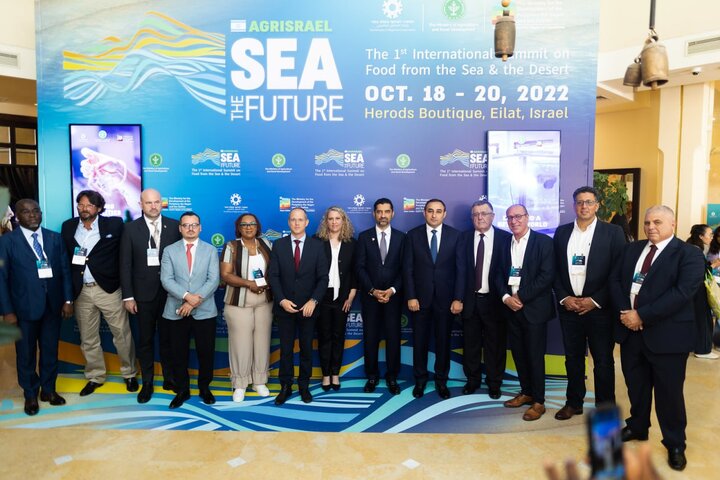TEHRAN (Iran News) –The so-called “Abraham Accords” are a series of U.S.-brokered agreements between Israel and the UAE, Bahrain, and Morocco. Israel claims Sudan will normalize ties later this year.
The two initial parties formally signed the agreement on Sept. 15, 2020, at the White House lawn to normalize diplomatic ties with Israel under former U.S. President Donald Trump. A similar agreement was signed between Morocco and Israel on Dec. 10, 2020.
Despite much Israeli anticipation, since the so-called “deal of the century”, the scope of the “Abraham Accords” has failed to bring in new members.
The normalization deals were met with disappointment, especially among the resistance front.
The Leader of Iran’s Islamic Revolution, Ayatollah Sayyed Ali Khamenei, stated that “some governments have unfortunately made errors – have made big errors and have sinned in normalizing [their relations] with the usurper and oppressor Zionist regime.”
Lebanon’s Hezbollah noted some Arab states invented religious pretexts to legitimatize Israel’s occupation of Palestinian lands.
Last year, Iraq approved a law banning any forms of normalization with the “Zionist enemy”.
Yemen said the “losers” who sought normalization “will soon regret their actions”.

Israel and the U.S. want to advance the Abraham Accords by holding various events like sports, economic, social, educational, and cultural gatherings.
The Palestinians condemned the three Arab states’ move, calling it a stab in the back.
The normalization agreements include five matters that serve each party’s interests.
Water scarcity remains a crucial issue for West Asia. Nations depend on water for survival and its shortage severely impacts economic stability and growth.
The expectation in the normalization deals is that water cooperation will mostly be focused on a startup ecosystem.
A deal between Israel, Jordan, and the UAE saw water delivered to Jordan by Israel in exchange for solar energy exported from Jordan.
With climate change driving the water shortage, another option within the framework of the Abraham Accords is to set up a fund that supports water projects.
In October, a meeting was held on the concerns of food scarcity among signatories to the “Abraham Accords” in the southern Israeli settlement of Eilat.
The Israeli “Negev Forum” last year brought together the foreign ministers of the countries who signed the “Abraham Accords”.
Participants discussed cooperation in energy, regional security, tourism, food security, water, and health.
However, the planned gathering at the Negev Forum this year has been reportedly postponed due to the escalation in Israel’s attacks against Palestinians in the occupied territories.
In October Israel and Bahrain signed an agriculture cooperation deal, Israeli officials said. A Bahraini delegation traveled to the occupied Palestinian territories and the regime signed deals with both Morocco and Bahrain.
The signing took place at an international conference in the Israeli settlement of Eilat in the occupied Palestinian territories whose focus included “innovation in aquaculture, as part of global efforts to address food security”. Also present were officials from the UAE.
During a recent trip to the UAE, as part of Washington’s efforts to build on the “Abraham Accords”, Jose Fernandez, a U.S. undersecretary of state, said he had discussed certain projects.

Israel and the U.S. want to advance the Abraham Accords by holding various events like sports, economic, social, educational, and cultural gatherings.
The “Abraham Accords” have created opportunities for member parties in terms of education and culture.
A critical part of the “Abraham Accords” cooperation is education, in a region where almost 65% of the population is under the age of 30.
It paves the way for collaboration in education and attempts to expand academic exchange programs.
Why are the U.S. and Israel so keen on providing this to the younger generation?
Polls show the youth in the Arab states that have normalized ties with Israel have an extremely negative view towards Israel.
In the framework of such exchange programs, the regime is attempting to change the newer generation’s perspective of Israel by offering initiatives such as education and culture at the expense of Palestinian blood.
These exchange programs will allow Arab youth to study Israel’s distorted facts.
Academic exchange programs have already started. Last summer, a delegation of Moroccan students studied at Israel’s Ben-Gurion University.
Several Emirati students have already enrolled in Israeli universities as well.
The other aspect of the “Abraham Accords” is the political, security and social measures that have so far failed to materialize as quickly as some parties had anticipated.
Nevertheless, the UAE and Israel have gradually engaged in increasing cooperation in the military sector.
Reports suggest U.S.-Israeli integrated military radar systems had been or could be deployed in the UAE and Bahrain.
Israel has reportedly “bought an island” from Bahrain, prompting criticism from activists opposed to the ongoing normalization.
Among the main institutions actively involved in the fields of water, food, agriculture and education/cultural cooperation is the Abraham Accords Peace Institute or AAPI.
Reportedly, the AAPI sets the U.S. agenda of encouraging other countries to join.
According to the AAPI, total trade between Israel and the Abraham Accords countries increased from $593 million in 2019 to $3.47 billion in 2022.
It further says Israel imported $2.57 billion worth of goods and services from these countries last year, up from $378.3 three years earlier, and exported $903.9 million in goods and services, up from $224.8. million.
The Atlantic Council think tank is also playing a major role in expanding the “Abraham Accords”.
It launched a program to advance Washington’s agenda with the so-called N7 initiative project.
The N7 develops ideas and recommendations for governments serving as a clearinghouse for information on the status of normalization.
It will hold a conference on agriculture, water and food security next month in Abu Dhabi that “helps build personal relationships among government officials and thought leaders”.
In spring, a senior leadership conference will be held in the occupied Palestinian territories to discuss “energy, tourism, health, and regional security.”
A third meeting will also be held in the occupied Palestinian territories this winter with a focus on trade.
David Kushner, the former U.S. President’s son-in-law who is a Zionist, played a big role in clinching the “Abraham Accords”.
Other figures advocating its expansion include Robert Greenway, president of the AAPI and the self-proclaimed “principal architect of the historic Abraham Accords”.
According to the Hudson Institute, Greenway served as a senior U.S. intelligence officer and is a combat veteran of the U.S. Special Forces in Iraq and Afghanistan.
He was a senior U.S. government official responsible for developing, coordinating and implementing U.S. policy for West Asia and North Africa.
He is pushing Israel to create a subdivision in its ministry of tourism to “specifically deal with Abraham Accords countries, incentivize hospitality investment, and create reciprocal e-visa schemes with those countries.”
Another U.S. Zionist, Avi Berkowitz, is a major player in the “Abraham Accords”. He worked closely under Kushner before serving the Trump White House.
In June 2020, Berkowitz proposed to Israeli Prime Minister Benjamin Netanyahu that as an alternative to the annexation of the West Bank?
Asher Fredman, the director for Israel at the AAPI, has admitted “there is a sense among parts of the population that the Accords have not directly benefited them.”
“To change this,” he added, “Israel and its allies in the U.S. must advance projects that mutually benefit Israelis and the people in the Accords countries, and we must communicate the impact of those benefits.”
Bahraini Royal family member Sheikha Jawaher Al Khalifa was over the moon to have visited Israel on a business trip, saying “I had the honor and pleasure to have a beautiful, beautiful dinner with some of my associates.”
“I went there. I loved it. And I’m very proud.”
Is she also proud of Israeli massacres this year or the fact that Palestinians (unlike her) can’t travel in their own native land?
- source : Tehrantimes






























